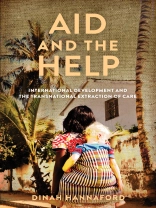Hiring domestic workers is a routine part of the expat development lifestyle. Whether working for the United Nations, governmental aid agencies, or NGOs such as Oxfam, Save the Children, or World Vision, expatriate aid workers in the developing world employ maids, nannies, security guards, gardeners and chauffeurs. Though nearly every expat aid worker in the developing world has local people working within the intimate sphere of their homes, these relationships are seldom, if ever, discussed in analyses of the development paradigm and its praxis. Aid and the Help addresses this major lacuna through an ethnographic analysis of the intersection of development work and domestic work. Examining the reproductive labor cheaply purchased by aid workers posted overseas opens the opportunity to assess the multiple ways that the ostensibly ‘giving’ industry of development can be an extractive industry as well.
สารบัญ
Introduction: Aid Work and the Extraction of Care
1. Finding Help in the Informal Economy
2. Security and Everyday Bordering
3. Stratigraphies of Mobility
4. Inequalities of the World Personified
Conclusion: Conclusion
เกี่ยวกับผู้แต่ง
Dinah Hannaford is Associate Professor of Anthropology at the University of Houston. She is the author of
Marriage Without Borders: Transnational Spouses in Neoliberal Senegal (2017).












